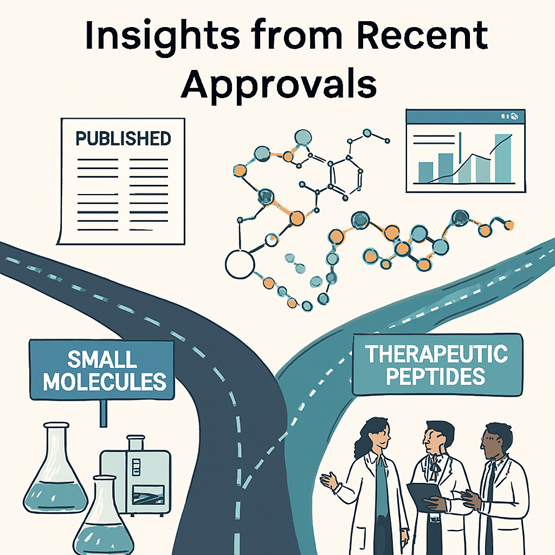Author: Carolina Säll, PhD on November 18, 2025 
Are you involved in drug development for therapeutic peptides—whether in DMPK, clinical pharmacology, or other related disciplines? Are you unsure of how the development program differs from your standard small molecule projects? In 2023, we published an industry position paper, which was the first step towards guiding our pharma colleagues. In this new report, we perform a follow-up analysis of the therapeutic peptides approved in subsequent time from our first white paper. This expanded dataset now includes 40 therapeutic peptides approved since 2008 and thereby provides a unique resource for drug developers.
We previously provided guidance where a high-risk drug-drug interaction (DDI) strategy was recommended for large peptides (> 2 kDa) compared to the low-weight peptides (< 2 kDa), which are expected to behave more similarly to small molecules. The latest publication is in line with our previous conclusion and no metabolism- or transporter-based clinical DDI studies were performed for peptides that were larger than 2 kDa.
In order to continue advancing the field of peptide DDIs, we strongly encourage our DMPK colleagues to actively publish positive and negative results from peptide DDI studies during drug development, including those that fail to reach the final submission stage. These data will be invaluable for us to gain a deeper scientific understanding of where real clinical DDI risk lies for therapeutic peptides. This will also contribute to the overall vision of reaching clear and harmonized peptide DDI guidelines that are provides value in terms of identifying DDI risks and ultimately safeguard our patients.

The comment feature is locked by administrator.